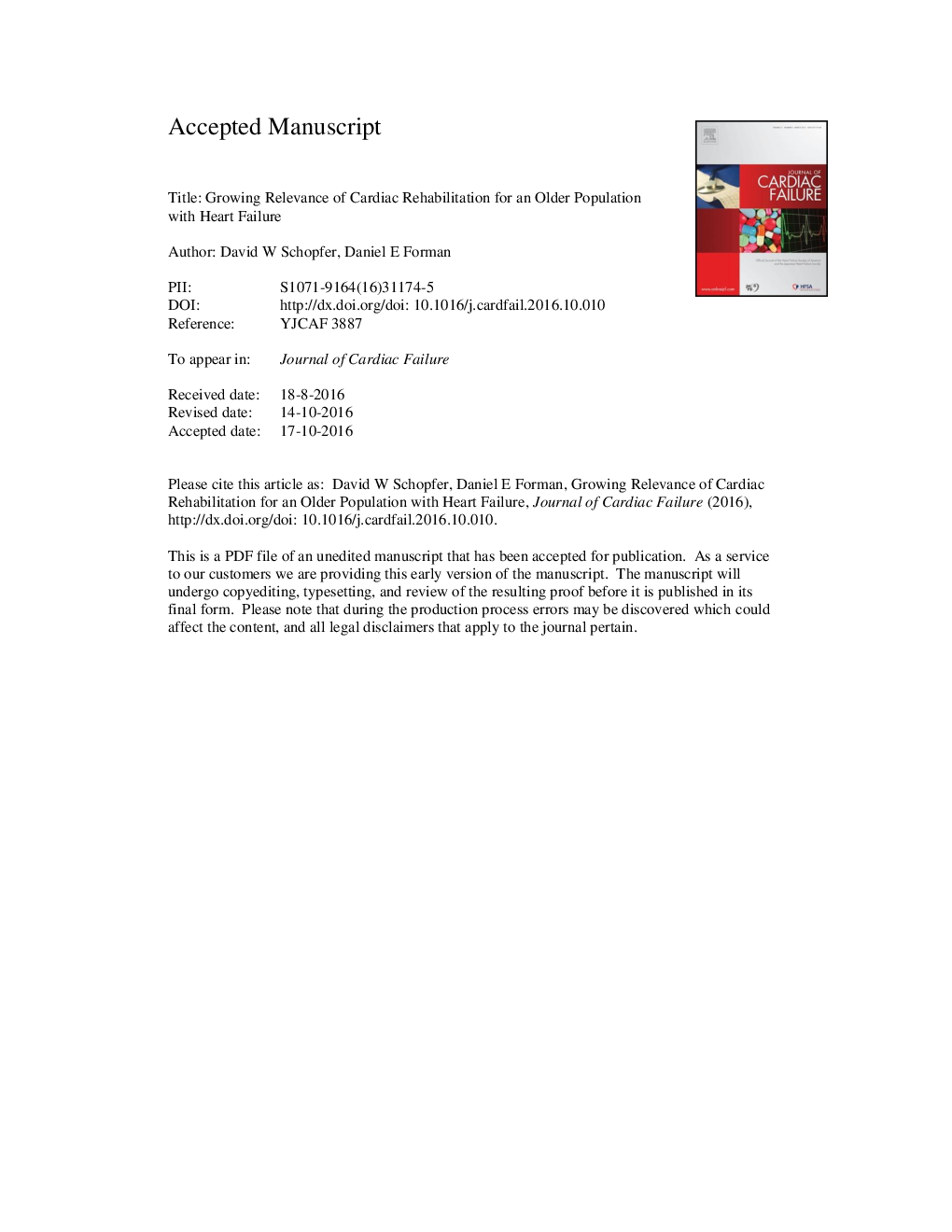| Article ID | Journal | Published Year | Pages | File Type |
|---|---|---|---|---|
| 5614459 | Journal of Cardiac Failure | 2016 | 23 Pages |
Abstract
Cardiac rehabilitation (CR) is a comprehensive lifestyle program that can have particular benefit for older patients with heart failure (HF). Prevalence of HF is increasingly common among older adults. Mounting effects of cardiovascular risk factors in older age as well as the added effects of geriatric syndromes such as multimorbidity, frailty, and sedentariness contribute to the high incidence of HF as well as to management difficulty. CR can play a decisive role in improving function, quality of life, symptoms, morbidity, and mortality, and also address the idiosyncratic complexities of care that often arise in old age. Unfortunately, the current policies and practices regarding CR for patients with HF are limited to HF with reduced ejection fraction and do not extend to HF with preserved ejection fraction, which is likely undercutting its full potential to improve care for today's aging population. Despite the strong rationale for CR on important clinical outcomes, it remains underused, particularly among older patients with HF. In this review, we discuss both the potential and the limitations of contemporary CR for older adults with HF.
Related Topics
Health Sciences
Medicine and Dentistry
Cardiology and Cardiovascular Medicine
Authors
David W. MD, MAS, Daniel E. MD,
